Resources
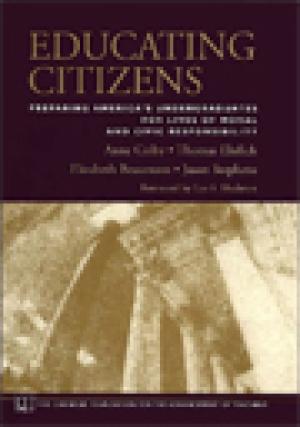
Educating Citizens reports on how some American colleges and universities are preparing thoughtful, committed, and socially responsible graduates. Many institutions assert these ambitions, but too few act on them. The authors demonstrate the fundamental importance of moral and civic education, describe how the historical and contemporary landscapes of higher education have shaped it, and explain the educational and developmental goals and processes involved in educating citizens. They examine the challenges colleges and universities face when they dedicate themselves to this vital task and present concrete ways to overcome those challenges. (From the Publisher)
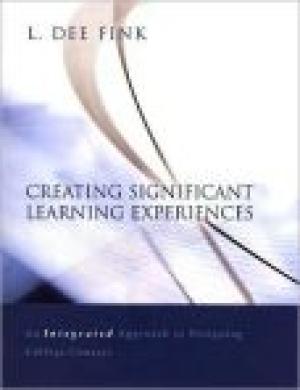
"When I read this book it was like starting over as a teacher. I had been convinced of the importance of the flipped classroom, but not until Fink’s approach did I see how the various components of my courses—the goals and outcomes, assignments, learning activities, and evaluation—need to be aligned and integrated in a coherent way. For too long these connections were implicit and students had to figure out how it all made sense.  At the beginning of every semester, I pull Fink off the shelf and do a few of the exercises to make sure my courses are ready to go. I strongly recommend you do the same." Kathleen Cahalan, St. John's School of Theology and Seminary Offering methods for improving teaching practices in higher education, Fink challenges educators to shift from the content-oriented "information dump" approach toward one that is learning-centered. Fink outlines his taxonomy of significant learning and shows how to combine new and traditional techniques to create powerful learning experiences. (From the Publisher)
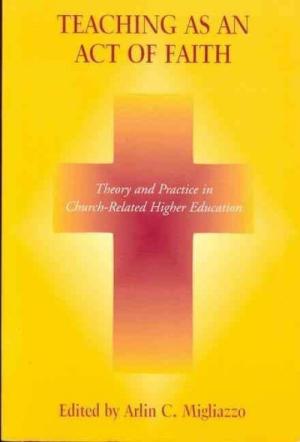
Interest in church-related higher education has increased greatly in recent years. Teaching as an Act of Faith is a practical guidebook on strategies to incarnate mission and epitomize theological and theoretical reflection in the classroom. In original essays, distinguished practitioners from fourteen liberal arts disciplines and Roman Catholic, Wesleyan, Anabaptist, Lutheran, and Reformed traditions demonstrate how they have been able link religious values more directly to their teaching. (From the Publisher)
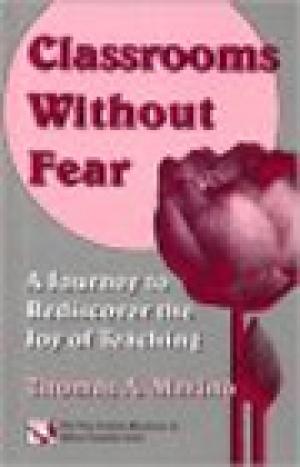
Here is one teacher's story about his personal journey toward a safe classroom for his students. He explains how new technologies, rising education costs - but most important personal, inward changes - forced a reexamination of his teaching methods and goals. (From the Publisher)
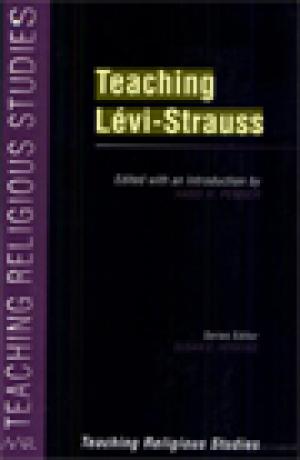
AAR Teaching Religious Studies Series (Oxford University Press) Claude Levi-Strauss's mid-twentieth century work in structural anthropology revolutionized the study of myth, kinship, and totemism, with lasting effects in cultural studies generally and especially in religious studies. This book provides an introduction to this revolution through generous reproductions of some of Levi-Strauss's most important writing on religion. Reactions and responses, both positive and negative, to the revolution are also included, as well as some of Levi-Strauss's replies to his critics. A general introduction by the volume editor provides a framework for understanding the historical development and contemporary meaning of structuralism for religious studies. This volume provides an unparalleled resource for teaching students about structuralism through Levi-Strauss's own essays and classic critiques of the theory. (From the Publisher)
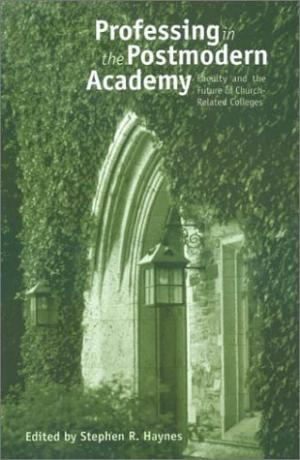
This work examines the landscape of religiously affiliated higher education in America from the perspective of faculty members critically committed to the future of church-related institutions. The book includes articles on a variety of topics from members of the Rhodes Consultation on the Future of the Church-Related College, a project that has involved ninety church-related institutions since 1996. (From the Publisher)
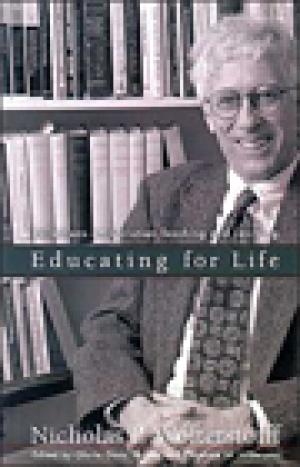
Few people have influenced the development of Christian schools in the Reformed tradition in North America and around the world as much as Nicholas Wolterstorff. As a tribute to his contributions, educators Gloria Goris Stronks and Clarence W. Joldersma have drawn together the world-renowned Christian philosopher's thoughts and reflections on Christian education over the last three decades. The guiding principle in making selections was the inclusion of pieces that discuss what makes education truly Christian. Wolterstorff's writings on education are divided into four sections that focus on the nature of Christian education, the criticisms of Christian education, Christian learning within a pluralistic society, and the goals of Christian education. Of special interest is Wolterstorff's increasing concern with the role of justice in Christian education. Educating for Life portrays Wolterstorff's evolving thinking on education while paying tribute to him as one of the premier Christian philosophers of our day. (From the Publisher)

From the Publisher "Those who ponder these pages will be renewed to love God with all their minds, to pursue truth, and to live faithfully."--David S. Dockery, Union University What purpose do purely intellectual pursuits have in the lives of Christians? Why should Christians study subjects that have little bearing on their future careers and ministry? In a style reminiscent of the work of Arthur Holmes and Harry Blamires, veteran professor of philosophy Clifford Williams addresses these issues and more in this succinct and accessible examination of the life of the mind. Christians cultivating the life of the mind actively pursue situations and discussions that require experimentation, reflection, and perseverance. They are interested in the acquisition of knowledge that is both unrelated and directly related to their faith. Williams answers common Christian objections to such activities, describes the virtues of the person who engages in the life of the mind, and asserts that the life of the mind is justifiably a Christian calling. The Life of the Mind, the newest addition to the RenewedMinds imprint, is directed toward students contemplating the importance of college and intellectual activity in general, but it will be enjoyed by all committed to developing a Christian mind.
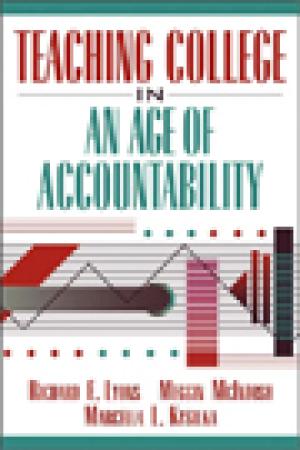
Teaching College in an Age of Accountability provides professors with the insights and tools necessary to achieve higher levels on accountability assessment outcomes while preparing students for enhancing their own career success in a more complex future. In recent years, many initiatives have been implemented by a number of state legislatures and boards of trustees to increase "institutional effectiveness." These measures have made colleges and universities aware that practices once accepted as sacrosanct within the culture will, from this time forward, be assessed regularly for their contribution to achieving more accountable outcomes. Teaching College in an Age of Accountability is the first book that focuses exclusively on the implications of this trend on the work of individual professors. Accountability proponents generally call for increased access to higher education for all citizens, improved retention of students once they are enrolled, and graduation and placement rates that recognize the investment of tax and institutional funds in students' success. This book equips professors to address each of these outcome goals in a proactive manner. (From the Publisher)
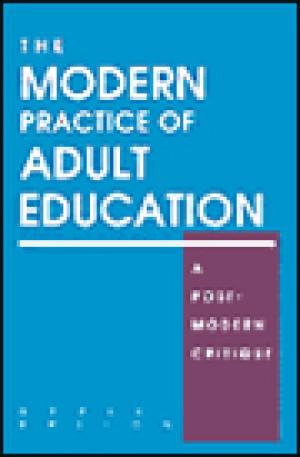
Briton challenges the dominant depoliticized vision of adult education, calling into question the modernist tenets and moral integrity of contemporary adult education practice. By examining his own struggle to escape the confines of modernist thought, the author delivers a succinct yet decisive critique of modern educational practice and challenges educators to reconceptualize their field of endeavor as a postmodern pedagogy of engagement. In refusing to deny its conjectural foundations, to mask its tenuous structure, or to defend its precarious integrity, the book assumes a form that distinguishes it markedly from its modernist counterparts. In favoring commentary over empirical evidence, a multiplicity of voices over a prescriptive narrative, the development of an ethical attitude toward practice over formulaic prescriptions for practice, and inter- over intra-disciplinary sources to substantiate its claims, this work calls into question a whole range of modernist predilections. By repeatedly breaching the narrowly prescribed parameters of adult education's orthodoxy and constantly promoting reflective inquiry, this book reveals how different, yet equally valid, forms of evidence can be drawn upon to develop an ethical postmodern perspective that calls the modern instrumental practice of adult education into question. (From the Publisher)